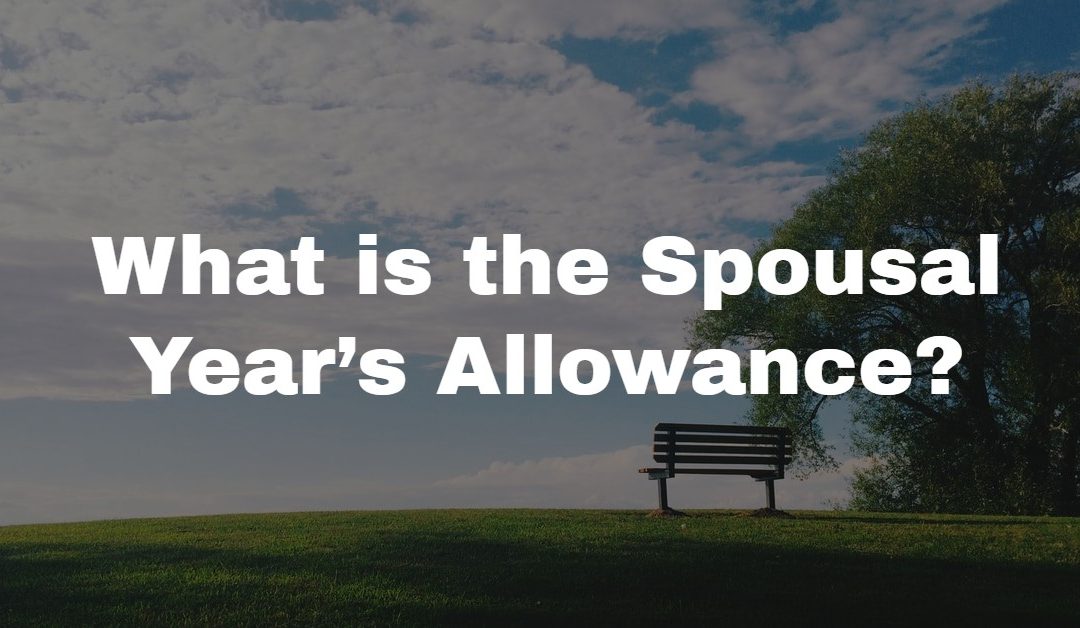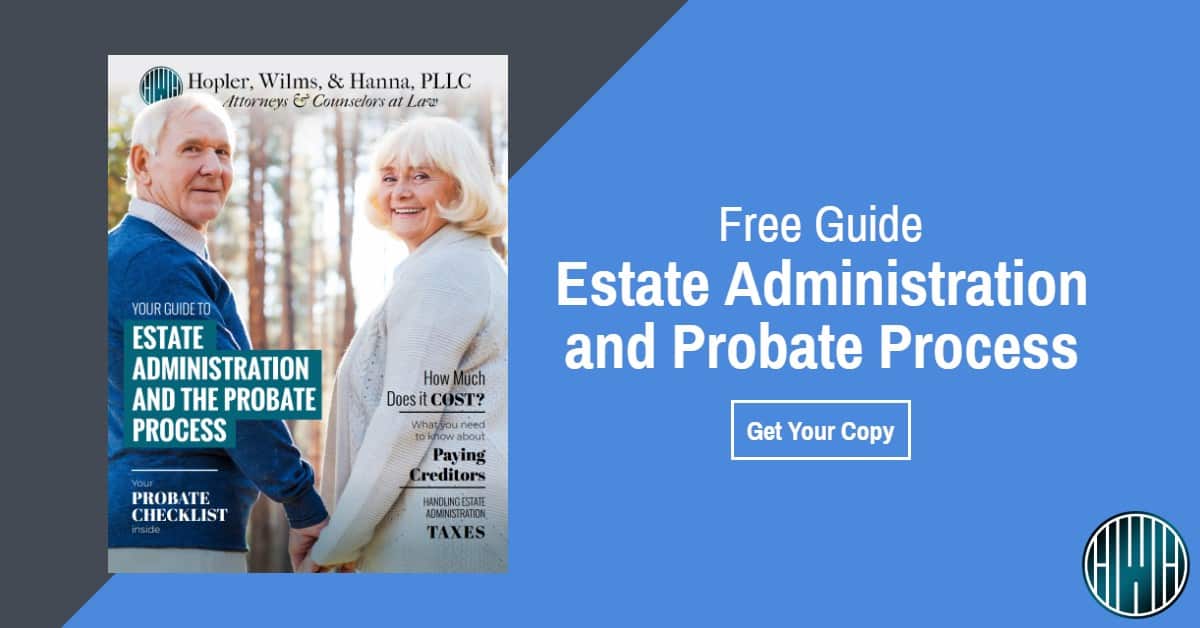Losing a spouse is one of the hardest losses a person can go through. On top of the grief, the surviving spouse also may have to deal with the probate process and all the headaches that can come from that.
They are hearing all sorts of new phrases and balancing that with trying to figure out their next steps. One of those phrases they may hear could be the year’s allowance or the spousal year’s allowance.
This is definitely something that is important for surviving spouses to know about as it impacts them directly and, depending on the size of the estate, could be the main thing they have to worry about.
What is the spousal year’s allowance?
There are two types of year’s allowance that the executor of an estate may hear about: one for children of the decedent and one for the surviving spouse. A spousal year’s allowance is intended to provide a means of support for the surviving spouse throughout the administration of the estate.
When it was originally written into law, it was to help widows and children of the decedent in their time of need and to prevent the time it takes to administer the estate of a deceased person from impoverishing the family in the meantime.
Today, the allowance applies to both men and women but still exists to help them during an already difficult time. It is available in both testate and intestate estates, meaning surviving spouses are entitled to it whether or not the decedent had a will.
If the decedent had a will, the spousal allowance is applied against the amount the surviving spouse takes under that will. It is not credited against the share the surviving spouse takes if there is not a will.
How much is it?
There are two different ways to figure out the spousal allowance. The minimum amount according to North Carolina statutes is $60,000. The spouse may also apply for an allowance of greater than $60,000 depending on the income of the deceased person.
The maximum amount is one half of the average annual net income of the decedent for the three years immediately preceding the decedent’s death. This net income means take home pay after taxes. These amounts are to provide the surviving spouse the same level of support they may have been accustomed to prior to losing their loved one.
What can be used to pay?
The spousal allowance is paid using personal property, including but not limited to money in accounts and from any vehicles the decedent owned. Real property, meaning land and buildings, cannot be used to satisfy the spousal allowance. The spousal allowance also takes priority over claims against the estate. This means that the spousal allowance gets paid before any other claims.
However, if there is a secured interest in the personal property, such as a lien against it, that amount is subtracted from what can be used to pay the spousal allowance. For example, if the person dies with a car worth $10,000 and the car has a lien of $4,000 on it, only $6,000 can go towards the spousal allowance.
What if there is not enough personal property?
If there is not enough personal property to cover the $60,000 for a spousal allowance, the clerk will file a deficiency judgement in the estate. If additional assets later get put into the estate, those can be used to pay towards the deficiency.
The deficiency has no expiration date; however, it is important to note that if there is a child’s year’s allowance, the amount assigned will be prorated to pay an equal portion of both allowances.
How does a surviving spouse apply for the year’s allowance?
Generally, it is the duty of the personal representative of the estate, also often called an executor or administrator, to assign the allowance if the spouse applies for it within one year of the decedent’s death.
However, if there is no personal representative or if the personal representative fails to assign the allowance to the surviving spouse, the spouse or their attorney can go directly to the clerk to apply for the spousal allowance using form E-100 and including the filing fee for that document.
If the surviving spouse wishes to apply for more than the $60,000 minimum, they will need to file a petition and have a special proceeding before the clerk. This filing must show that the spouse is entitled to the greater amount by showing that the estate is worth more than $60,000 and whether an allowance has already been made to the spouse or not.
What would keep the surviving spouse from getting their yearly allowance?
There are a few times that a spouse legally would not be entitled to the spousal allowance. Those situations include:
• If the decedent and surviving spouse were separated at the time of death, if the surviving spouse was living in adultery at the time of the death, or if the surviving spouse is considered to have willfully abandoned their spouse
• If the surviving spouse is determined to be a “slayer” under North Carolina law, meaning that they are found guilty or plead guilty to killing the decedent
• If the surviving spouse waived the right to a year’s allowance in a premarital agreement
• If the surviving spouse renounces or waives the right to a year’s allowance
There may also be times that other heirs challenge whether someone is really a spouse or not. For example, if there is not a valid marriage license or if the decedent was already married when they got remarried.
While these cases are not common, they have happened and have led to challenges against the estate and the spousal allowance for some individuals. You can prevent many of these types of situations by having a proper estate plan in place, especially if you and your significant other are not legally married.
It is also possible for the personal representative, surviving spouse, a child/the child’s guardian, or a creditor, or other heir to appeal the assignment of the spousal allowance if they file a notice of appeal within 10 days after the assignment. If they do appeal, there will be a hearing in superior court.

The spousal year’s allowance is designed to make sure they are able to do just that while navigating the estate administration process and waiting for any inheritance. With some small estates, this may be the only thing the surviving spouse has to do.
If you’re not sure how to apply for the spousal year’s allowance or if you’re eligible for it, the probate attorneys at Hopler, Wilms, & Hanna are happy to walk you through the process and answer any questions you have about the spouse’s year’s allowance, or any other probate questions you may have. Please reach out to schedule a consultation with one of our knowledgeable and experienced attorneys!


